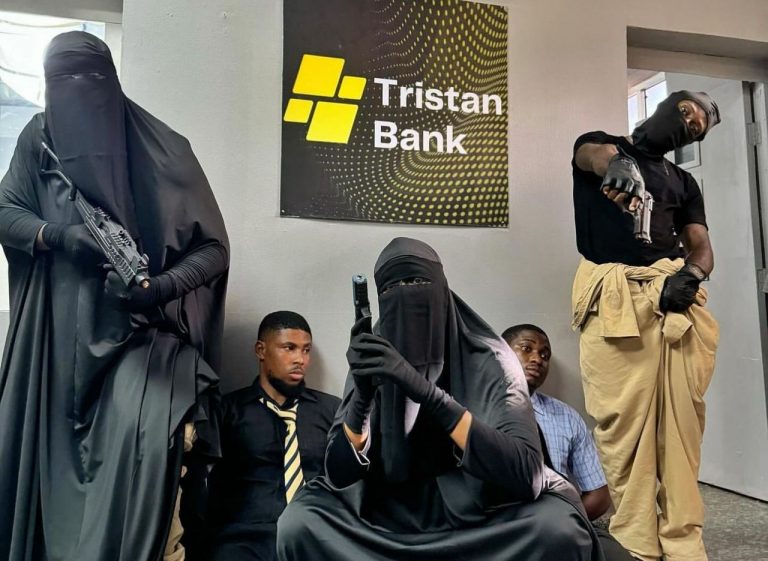Entertainment lawyers have defended the creative liberty of actors, emphasizing their right to express themselves and tell stories as they see fit, independent of religious influences.
This stance follows the backlash that erupted after actress Nancy Isime shared a movie poster on Thursday. The poster featured two women in black burqas wielding guns and a man in a balaclava holding two men hostage during a bank heist. Another photo showed Isime wearing a hijab and posing with a gun.
The imagery sparked outrage among some religious groups, who accused the film of desecrating Islam and perpetuating Islamophobia. The Muslim Rights Concern (MURIC) called for the film to be banned, labeling it “satanic” and accusing it of inciting violence and discrimination against Muslim women.
In response, MURIC’s executive director, Ishaq Akintola, urged the National Film and Video Censors Board (NFVCB) to take swift action against the film, claiming it portrays Muslim women as criminals.
However, entertainment lawyers have pushed back against these criticisms. Olumide Sonupe, principal partner at Sonupe Law Firm, emphasized that Nigeria is a secular country where actors have creative freedom. He argued that religious morality should not dictate the legal framework.
Sonupe stated, “When we are talking about morality, the morality of the Islamic religion and their belief is very distinct from what the law says. Being a secular society, some people are not religious and that doesn’t stop them from doing things that might be against the morals of any religion. The only thing you can do to such a person is to tell them they are banished from the religious society.”
He added that if a film portrays Islam in a negative light, the most religious groups can do is advise their followers not to watch it. “It is called acting, it is not the reality of things,” he said.
Another entertainment lawyer, Femi Njoku, noted that films often reflect societal realities and should be viewed as such.
Meanwhile, the National Film and Video Censors Board has stepped in to address the controversy. In a statement released late Thursday, Director General Shaibu Husseini confirmed that contact had been made with the producers to discuss the contentious issues.

